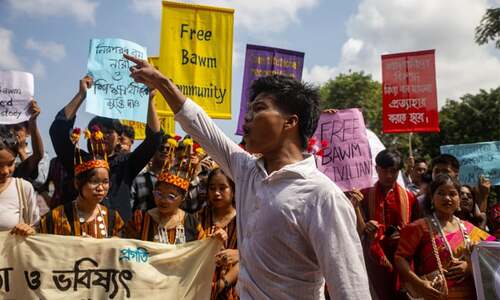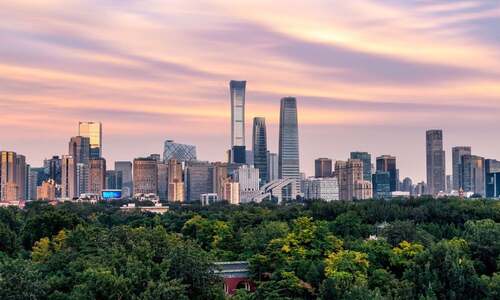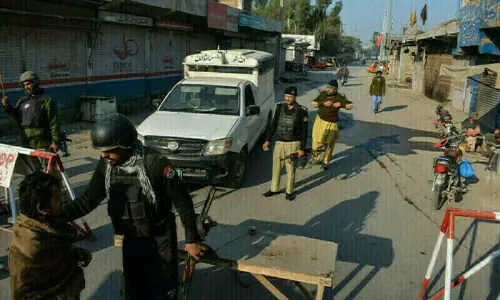WASHINGTON: US President Barack Obama will visit Hiroshima later this month, while he’s in Japan for the G-7 summit, the White House announced on Tuesday.
The trip will mark the first visit by a US president to the site since American forces dropped nuclear bombs on Hiroshima and Nagasaki at the end of World War II.
Japanese Prime Minister Shinzo Abe will join Mr Obama on the visit, where the president will “highlight his continued commitment to pursuing the peace and security of a world without nuclear weapons,” the White House said in a statement.
Senator Ben Cardin, the ranking Democrat on the Senate Foreign Relations Committee, welcomed the visit, noting that “the president’s ability to visit Hiroshima is a testament to our shared interests and shared values” with Japan.
“In a complex world of unsolved old problems and mounting new challenges, we have the vision and the ability to solve this one so that future generations might be spared from a nuclear attack,” he said.
While in Hiroshima, President Obama is expected to visit the site where the bomb was dropped and which has now been converted to a park and museum dedicated to the victims.
During the 2012 presidential campaign, Mr Obama was criticised by Republican candidate Mitt Romney for going on an “apology tour,” travelling the world apologising for American foreign policy.
“Will Obama’s apology tour end in Hiroshima?” asked the Weekly Standard in September. But since then, the Obama administration consulted a number of conservative lawmakers on this issue, hoping to soften their criticism.
Last month, Secretary of State John Kerry became the highest-ranking US official to visit Hiroshima since the nuclear attacks.
Secretary Kerry called the Peace Memorial Museum “a stunning display ... a gut-wrenching display” but he did not apologise for the attack. Senior Obama aides told reporters in Washington that the president also will not apologise for
the US decision to drop the atomic bomb on Aug 6, 1945, which killed an estimated 140,000 people in Hiroshima.
Three days later, a second atomic bomb killed up to 80,000 people in Nagasaki.
Published in Dawn, May 11th, 2016




































